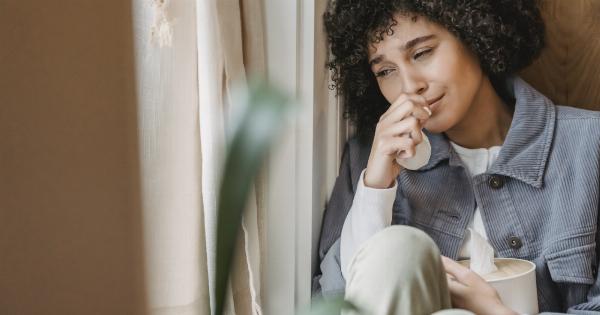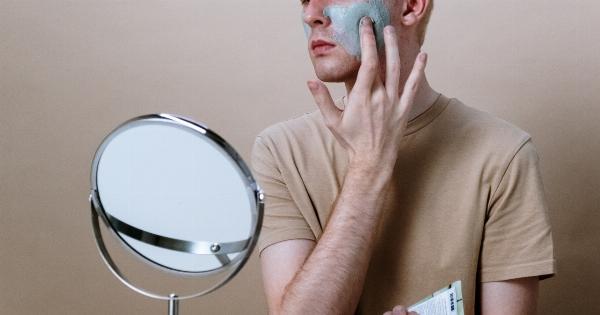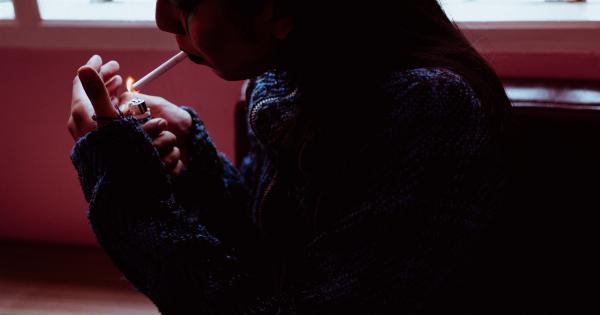Acne is a common skin condition that affects millions of people worldwide. While there are various factors that can contribute to the development of acne, certain bad habits can actually make it worse.
If you’re struggling with acne and want to improve your skin, it’s essential to identify and eliminate these habits from your daily routine. In this article, we will discuss ten common habits that can exacerbate acne and provide tips on how to break them.
1. Picking or Popping Your Pimples
One of the worst things you can do for your acne-prone skin is to pick or pop your pimples. Although it might be tempting to squeeze out that pesky whitehead, doing so can cause more harm than good.
Picking at your pimples can introduce bacteria into the skin, increase inflammation, and potentially lead to scarring. Instead, try using targeted acne treatments and non-comedogenic products to help your pimples heal faster.
2. Not Cleansing Your Face Properly
A daily skincare routine that includes proper cleansing is crucial for acne-prone skin. Not removing dirt, oil, and impurities from your face can clog pores and worsen acne.
Make sure to use a gentle cleanser suitable for your skin type and wash your face twice a day. Avoid harsh scrubbing or using abrasive exfoliants, as they can irritate the skin and trigger more breakouts.
3. Using Dirty Makeup Tools
Makeup brushes and sponges can harbor bacteria and oil if not cleaned regularly. Applying makeup with dirty tools transfers these impurities onto your skin, potentially leading to clogged pores and acne flare-ups.
Clean your brushes and sponges at least once a week with a mild shampoo or a dedicated brush cleanser to keep them free from buildup. Additionally, consider using non-comedogenic and oil-free makeup products that won’t clog your pores.
4. Skipping Moisturizer
Many people with acne believe that skipping moisturizer will reduce oiliness and prevent breakouts. However, this is a common misconception.
In reality, when your skin lacks moisture, it compensates by producing more oil, possibly leading to clogged pores and acne. Opt for oil-free, non-comedogenic moisturizers that hydrate your skin without clogging pores.
5. Overwashing Your Face
While it’s important to cleanse your face regularly, overwashing can strip away your skin’s natural oils and disrupt its balance. When your skin is excessively dry, it can trigger an overproduction of oil, leading to more acne.
Stick to washing your face twice a day with a gentle cleanser to maintain a healthy balance and prevent excessive oiliness.
6. Using Harsh and Irritating Products
Some acne sufferers make the mistake of using harsh and irritating products in an attempt to dry out their pimples quickly. However, these products can cause redness, stinging, and peeling, further irritating the skin and potentially worsening acne.
Look for skincare products that are labeled “non-comedogenic,” “gentle,” or “sensitive” to avoid unnecessary irritation.
7. Not Changing Pillowcases Regularly
It’s easy to overlook the impact of pillowcases on acne-prone skin. Pillowcases can accumulate oil, dead skin cells, and bacteria, which can transfer back onto your face night after night.
Changing your pillowcase at least once a week (or more frequently if you sweat in your sleep) can help limit this buildup and reduce the risk of breakouts.
8. Using Dirty Cellphones
Cellphones collect germs, dirt, and oil throughout the day, and when pressed against your face during calls, they can transfer these impurities onto your skin.
Regularly clean your cell phone with a disinfectant wipe or a cloth dampened with diluted alcohol to remove bacteria and reduce the potential for acne breakouts.
9. Stressing Too Much
Stress is known to worsen acne symptoms. When you’re stressed, your body releases hormones that can increase oil production and inflammation, leading to more breakouts.
Find healthy ways to manage stress, such as practicing yoga, meditation, or engaging in hobbies you enjoy. Taking care of your mental well-being can have a positive impact on your skin.
10. Poor Dietary Choices
While there isn’t a direct and universal link between specific foods and acne, some studies suggest that a high glycemic index (GI) diet or diets rich in dairy and sugary foods might exacerbate acne symptoms in certain individuals.
Opt for a balanced diet rich in fruits, vegetables, whole grains, and lean proteins, and monitor whether specific foods affect your acne. Everyone’s skin responds differently, so it’s essential to listen to your body.























